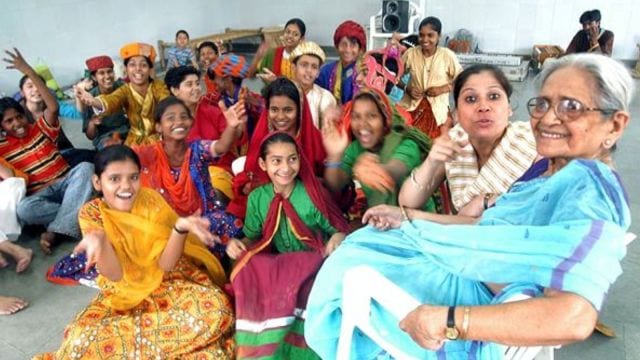100 Years of Rekha Jain: Theatre artiste who pioneered children’s theatre in India
The centennial programme at IIC also took a deep dive into contemporary issues surrounding Children’s Theatre in India, as veteran theatre artist and academician KG Krishnamurthy spoke about the theatre scene in Karnataka
 Veteran theatre artist Rekha Jain. (Express Archive)
Veteran theatre artist Rekha Jain. (Express Archive)A tribute to Rekha Jain on her centenary brought together prominent theatre artists to discuss the contemporary state of children’s theatre
Last week, Raza Foundation organised ‘Baalrang Drishya’, a centennial tribute to the life and work of veteran theatre artist Rekha Jain, who was a pioneer in children’s theatre in India.
Held at IIC Annexe in the Capital, the programme opened with theatre critic Mahesh Anand reminiscing about Jain’s struggles as a woman theatre artist in the ’40s. Anand said, “Her house was a kind of rehearsal space… at the time in the Hindi belt, people did not want to send their women or kids to watch or perform in plays. In Allahabad, she would have to be personally responsible for picking up and dropping all the women artists she worked with. At such a time, she was writing plays about women empowerment.”
This was followed by a theatrical reading of one of her writings by accomplished theatre actors Sajida Saji and Keyur Nandaniya. Their reading highlighted Jain’s unlearning of the orthodox ideals of womanhood she’d grown up with, and learning to assert and express herself as an artiste.
Born in 1924 to a conservative family in Agra, Jain formally ventured into theatre after being encouraged by her husband, eminent poet and critic, Nemichandra Jain. Starting her journey with Indian People’s Theatre Association (IPTA), Jain went on to work with IPTA’s Central Cultural Troupe in Mumbai, and then came to Delhi, where she associated herself with Delhi Children’s Theatre. In order to make sure that the medium of theatre is within reach of all children, including those from underprivileged and the marginalised spaces, she started her own organisation – Umang, which has continued its seminal work in the field after her passing in 2010.
The centennial programme at IIC also took a deep dive into contemporary issues surrounding Children’s Theatre in India, as veteran theatre artist and academician KG Krishnamurthy spoke about the theatre scene in Karnataka. Following him, award-winning playwright and lyricist Shrirang Godbole expounded upon the same in the case of Maharashtra. Both stressed upon the importance of imparting experiential learning and process-oriented practices when it came to creating a play with children as performers. This process-oriented approach was in part devised by Jain herself, as she would prepare a rough narrative framework for the children to navigate by themselves via improvisation, as opposed to the conventional product-oriented approach of adult theatre which is informed by a high standard of performance and aesthetic.
Godbole also spoke of the need to integrate theatre with other forms in order to impact the lives of children, highlighting his efforts to collaborate with activists, child psychologists and educators in Maharashtra.







